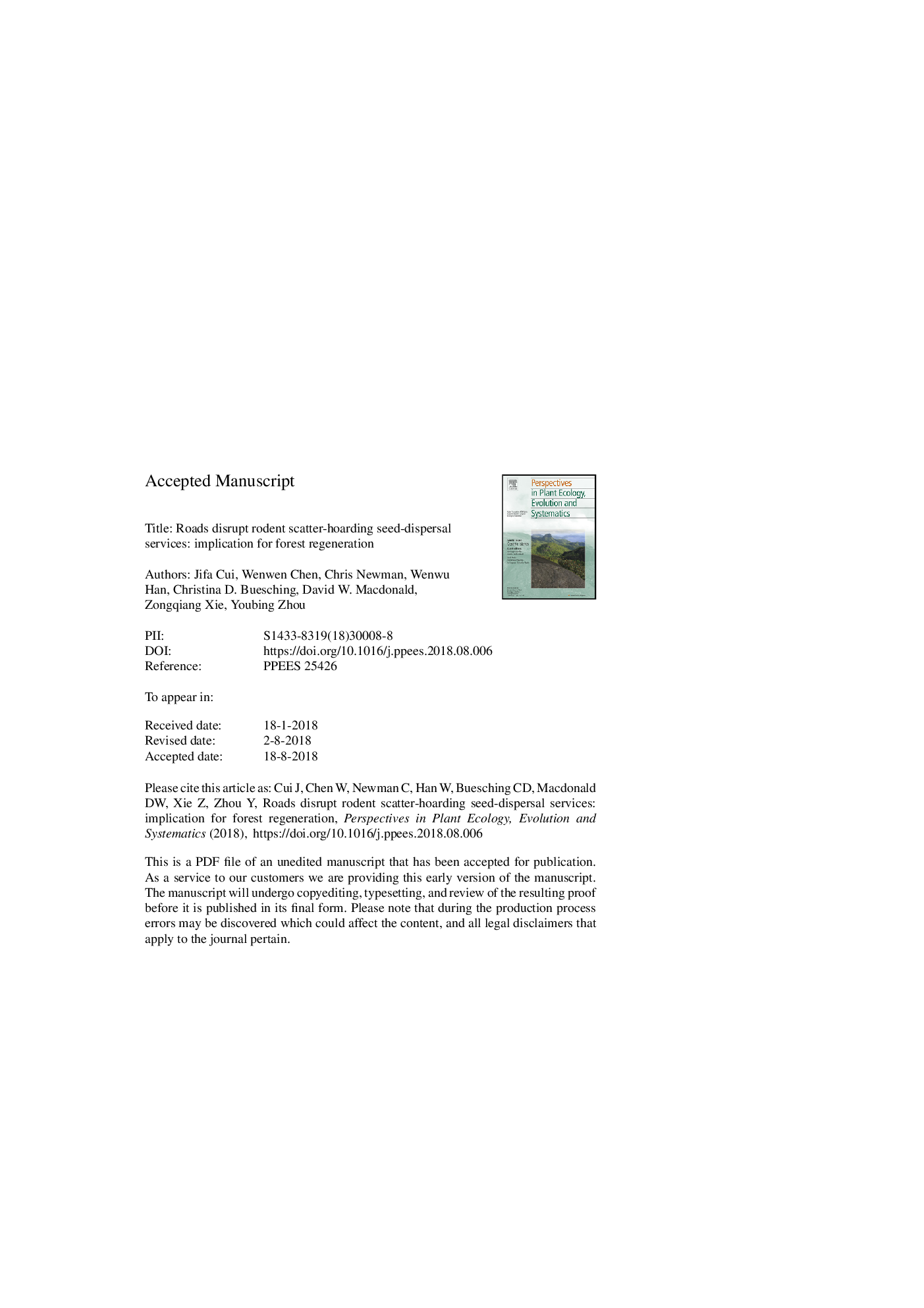| Article ID | Journal | Published Year | Pages | File Type |
|---|---|---|---|---|
| 10110410 | Perspectives in Plant Ecology, Evolution and Systematics | 2018 | 31 Pages |
Abstract
Currently, 43% of the world's terrestrial surface is within five kilometres of a road, and therefore understanding how road networks impact species and ecosystem processes is highly relevant to applied conservation ecology. Among various effects on wildlife, roads can disrupt the interaction between plants and their animal-mediated seed dispersers, compromising plant community composition and regeneration. Here, using the Chinese beech (Fagus engleriana) nut-rodent system, we quantified the extent to which rodent functions on seed dispersal were modified in habitats adjacent to roads. Compared to transects 200âm from the road, we observed approximately nine times greater seed dispersal effectiveness at transects 10âm proximity to the road and six times greater at 100âm from the road. Associated with this, high densities of seedlings, saplings and mature trees occurred closer to the road, suggesting that the road effect zone may facilitate plant recruitment. However, road proximity resulted in shorter nut dispersal distances, which did not support a benefit to plant recruitment. These counteractive effects may be caused by modified rodent behaviour in the vicinity of the road, and also by effects on rodent distribution and activity in relation to road-side habitat structure and environmental pressure. Crucially, no tagged seeds were dispersed across the road, implying that it imposed a barrier effect on animal-mediated seed dispersal and plant recruitment. We conclude that the ever-expanding effect of roads on zoochorous seed dispersal may ultimately cause profound changes in the structure of plant communities across diverse ecosystems, on a global scale.
Related Topics
Life Sciences
Agricultural and Biological Sciences
Ecology, Evolution, Behavior and Systematics
Authors
Jifa Cui, Wenwen Chen, Chris Newman, Wenwu Han, Christina D. Buesching, David W. Macdonald, Zongqiang Xie, Youbing Zhou,
